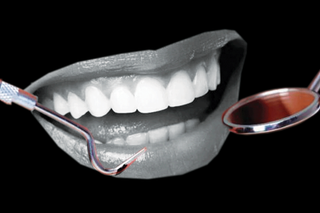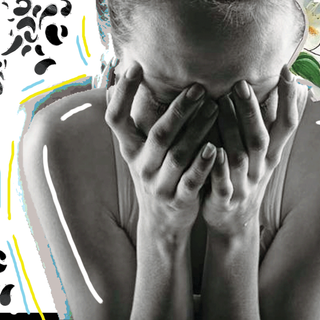
What Makes People Not Take Teeth Cleaning Seriously?
Complacency towards dental health stems from a misconception that it’s not related to one’s overall health.

“I had a dream once that all my teeth were becoming loose and I was spitting them out, one at a time. Apparently it is a common dream, supposed to be a sign of anxiety,” said Gitartha Goswami, 31, who has never been to a dentist in his life. “I think I won’t go to a dentist because they will judge me for my lack of teeth-care. My teeth are disastrous,” he said.
Dental visits, for most like Goswami, are emergency visits; it is only when people go through severe pain that they turn up at a dentist’s clinic. “Teeth are often the most ignored part of our body,” said Dr. Srishti Punjani, a dental surgeon based in New Delhi.
In an ideal world, however, experts advise visiting a dentist every six months for a regular check-up and cleaning, so that each tooth decay or cavities can be detected early. “The first step is to find a dentist with whom one could feel comfortable, and then schedule an appointment. If a person comes to us after every six months, a cavity could be fixed by a filling. But because most people come to us after more than six months, a cavity can no longer be worked upon by just filling it up; it will need a root canal treatment then,”said Dr. Sagar Shah, an implant dentist based in Mumbai.
While a filling is quick and costs about Rs 1,000-1,200 on an average, a root canal requires more than one sitting and costs three times a filling. Not only is it more painful, but heavy on one’s pockets, too.
*
The general complacency toward dental health stems from a popular belief that oral health experts often try to break — that dental health is not related to a person’s overall health. According to the World Health Organisation,oral health affects general health by causing pain, suffering and discomfort. “Oral bacteria and the toxins they produce can travel through the blood stream, potentially harming the heart and lungs. It is associated with cardiovascular disease — poor dental health increases the risk of a bacterial infection in the blood stream, which can affect the heart valves,” explained Dr. Smriti Bouri, a senior dentist based in New Delhi. “Gum disease can be an early sign of diabetes, indicating a relationship between sugar, oral bacteria and chronic inflammation. Poor dental health could also lead to complications during pregnancy, and pregnant mothers are advised to go through an entire dental check-up before delivery.”
A recent study says that most people get cavities and gum disease for the first time in their childhood, and these conditions can develop into more serious infections and tooth loss if they aren’t properly treated. Even though the link between oral health and general health are related, Dr. Howard Tenenbaum, in a study titled “Oral Health–Systemic Health: What Is the True Connection?,” notes that dental health should simply be considered an essential component of health, and should not be thought of being separate from the rest of the body.
*
In India, dental experts said avoiding dental care is due to a mix of fear and reluctance to invest the cost attached with treatments.
Ankit Verma, 32, said his first experience with a dentist was unpleasant, which left him with a fear that he may never be able to find a reliable one. “He told me that my front tooth has a cavity, and went on to perform a root canal. Then, he accidentally chipped my tooth and ruined it altogether. It didn’t just end with that — the cap that he placed came off along with my chipped tooth,” Verma recalled.
Related on The Swaddle:
Regulators Aren’t Requiring Insurance Companies to Pay for Dental, Fertility Treatments
In Verma’s case, one thing led to another and the costs kept mounting up. Dr. Punjani said it’s a common phenomenon among most patients she encounters. The only way to deal with it is by going to a dentist sooner rather than delaying it. “Most dental infections are chronic infections. So they tend to breed in your system and eventually go on to cause other diseases. People buy medicines off the counter to deal with a sudden pain. That only kills the symptom and not the disease,” she said.
Studies have shown as many as 61% of people are hesitant about seeing the dentist; possibly 15% are so apprehensive that they ignore a dentist completely, and a smaller percentage of people have a phobia that might even require psychiatric help. According to Dr. Punjani, people are scared of dentists because they associate dental procedures with pain. But modern dentistry, she said, has become far less painful due to use of anesthesia, thinner needles, and minimally invasive dental surgeries. “Once they start visiting a dentist and talking to them, perhaps their fears could subside,” she said.
Moreover, doctors and experts interviewed said most people are wary about spending money on their teeth. “Dental insurance policies are important because people will then start prioritizing their dental health. Most people here don’t consider it important because they’re unaware of its health implications and worry too much about the cost associated with it,” said Dr. Punjani.
Although exact data on India’s oral disease burden is hard to find, a Hindustan Times report stated that the Union health ministry had commissioned the All India Institute of Medical Sciences (AIIMS) to conduct a national survey to determine India’s oral disease burden. The report revealed there are no India-specific policies on oral and dental health, and that there is a need to bring everything related to it under a “single umbrella” that would track market trends and determine which oral health products are really needed and promote preventive oral health. It also emphasized the need for more adequately trained experts to deal with the burden of dental diseases.
But as far as avoiding dental health is concerned, Dr. Punjani said, “The more you wait, the more you spend.”
Sanskrita Bharadwaj is a freelance journalist. Some of her bylines have also appeared in Scroll, the Hindu, Indian Express, IndiaSpend, Quint, Firstpost, and The Wire. She has previously worked at the independent publishing house, Aleph Book Company in New Delhi as an assistant editor.
Related


Researchers Call for Doctors to Treat PCOS, Mood Disorders Holistically
